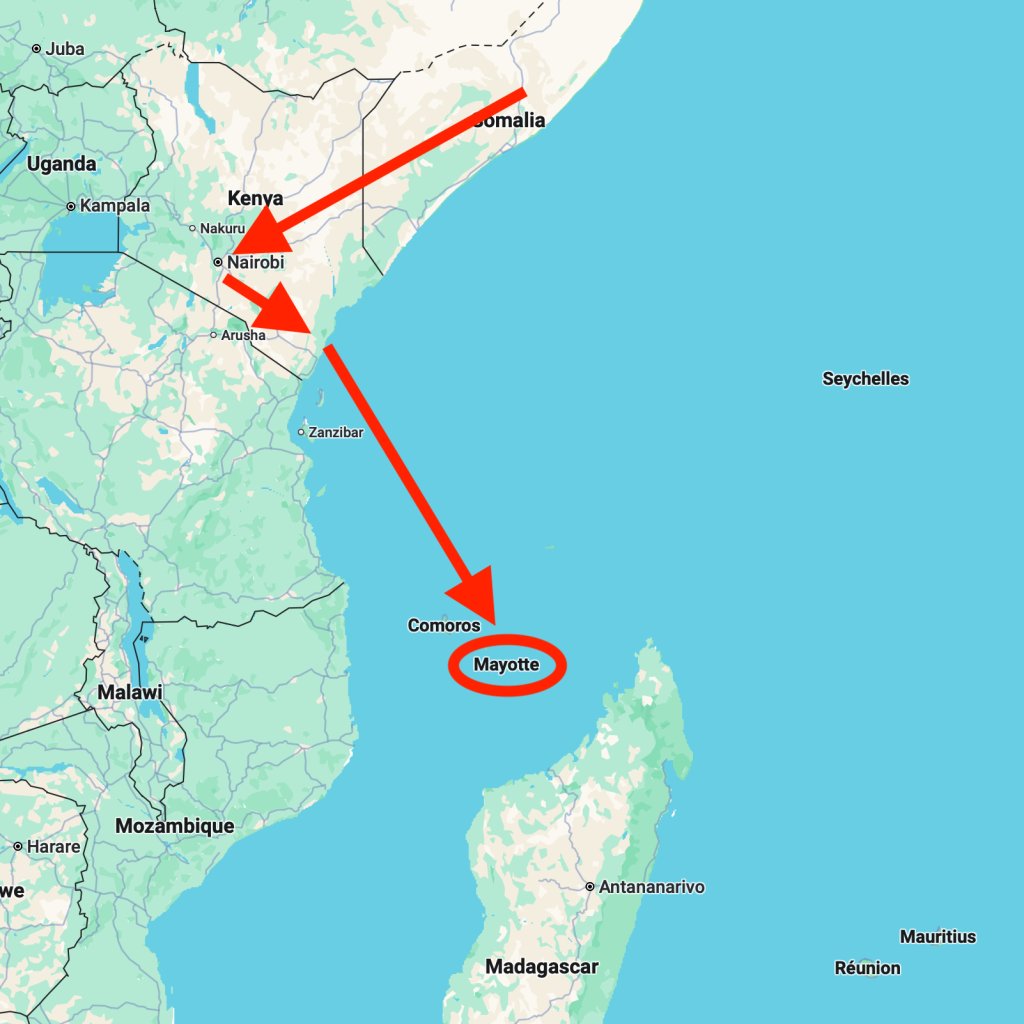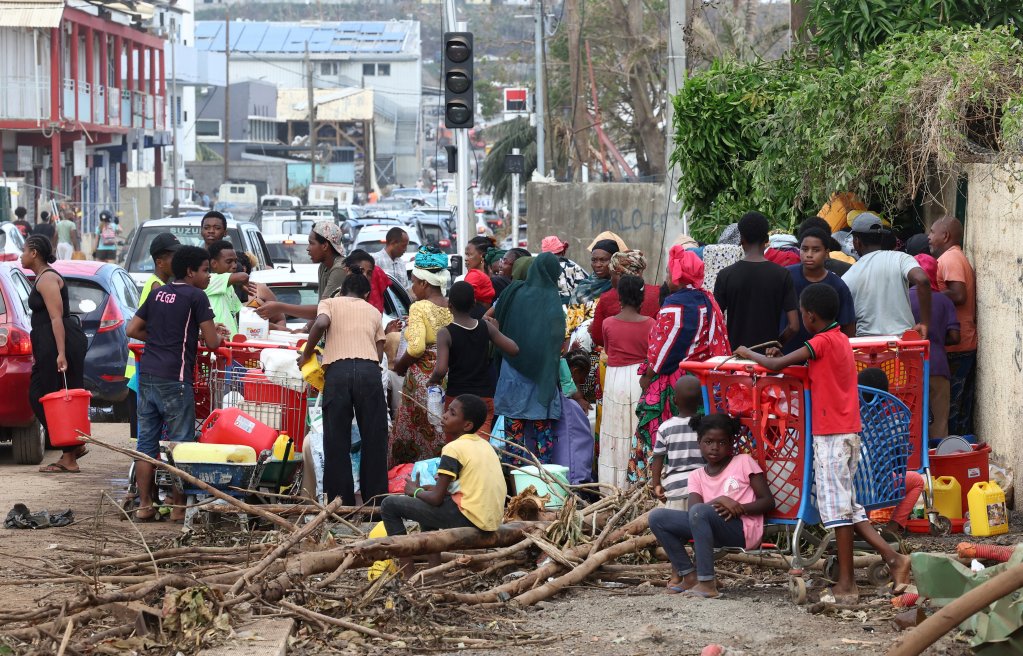Plagued by decades of political unrest and extreme weather events more and more Somalis are seeking to emigrate. Many of them hope to journey to the French Overseas Territory of Mayotte in the Indian Ocean to escape from poverty and persecution. French authorities estimate that there are over 100,000 migrants living in Mayotte now.
With a civil war dating back to the 1990s and relentless extreme weather events, Somalis are increasingly embarking on dangerous migrations.
In 2021, the International Organization for Migration (IOM) estimated two million Somalis had left their homeland in search of a better life elsewhere; however, this figure is likely to be higher as climate disasters and extremist violence continue to displace an unknown number of people across the country.
Drawn by the hope of being granted asylum and escaping from poverty and instability, more and more Somali nationals embark on the Mayotte route.
Earlier in the year, French authorities estimated over 100,000 migrants to live on the small island in total, though it is unclear how many of them came from Somalia.
Since the island was devastated by Cyclone Chido earlier in December, it may be long before authorities establish how many migrants remain there, and what their nationalities are, as many of them are feared to have died in the storm.
Read AlsoAftermath of Mayotte cyclone 'will be complicated,' say fearful migrants

The woman who would do it all again
Idil Abdullahi Goley is just one of many who have sought to reach the island of Mayotte, which is considered part of the European Union, as it is administered by France.
The 28-year-old mother of three borrowed money from relatives to pursue a better life in Mayotte, hoping to repay them once she succeeded.
Her journey to the EU began with a dream and a wad of borrowed cash paid out to smugglers.
Along the way, she would see some 25 people dying right in front of her -- some in her own arms. Goley herself only narrowly escaped death.
But in the end, Goley would find herself back in Mogadishu, the starting point of her journey -- without ever reaching the French island.
She came back home plagued with nightmares; still, she says it is a journey that she would risk taking again, as she has started planning another journey on the same route.
Read AlsoSomalia and Germany announce deportation deal
Left to die at sea
Speaking to the Associated Press, Goley re-traced her harrowing journey which involved a plane journey from the Somali capital of Mogadishu to the Kenyan capital, Nairobi, and then hopping on a bus to reach the port city of Mombasa.
After this, she set sail on a series of fishing boats to travel about 1,000 kilometers to the island of Mayotte in the Mozambique Channel of the Western Indian Ocean -- the poorest territory in both France and the European Union.
After three days at sea, Goley and around 70 other people were moved to smaller boats whose engines however were no match for the strong ocean currents.
The smugglers left, promising to return to fix the problem. But after a few days, it became clear that they had abandoned them without any food or water.
The passengers had to survive by drinking rainwater and catching fish in the choppy waves of the Indian Ocean.
Read AlsoFrance orders more deportation flights to Africa from Indian Ocean island of Mayotte
Rescued at last - for a fee
Two of Goley's friends who were traveling with her later died on board. She tried to save the life of a baby and their mother but they also died right in front of her.
The bodies had to be thrown out into the sea to prevent the, from decomposing on board.
Goley's ordeal ended when a fishing boat rescued them and transported them to Nosy Be in northern Madagascar -- for a fee of $100. By then there were only 48 survivors left.
Then early December, Goley was repatriated back to Somalia.
If she had made to the island, she could have been one of thousands killed by Cyclone Chido earlier in December.
But none of these dangers seem to deter Goley, whose mind is set on making it abroad.

Somalis in Europe
According to data from the European Union Agency for Asylum (EUAA), Somalis only ranked as the fourteenth largest group seeking international protection in the EU+ (27 European Union Member States plus Norway and Switzerland), with monthly applications ranging from 1,200 to 1,700 between July 2021 and December 2022.
During this time, EU+ countries issued approximately 23,300 first-instance decisions, granting refugee status or subsidiary protection in approximately 57 percent of all cases.
However, the number of applications is expected to have risen, as the numbers from 2021 and 2022 were also impacted by the effects of COVID-19, including a dip in migrant journeys.
Read AlsoJournalists are among those fleeing Somalia for Europe
